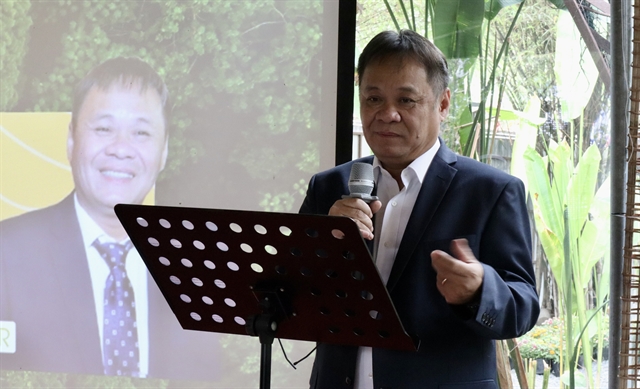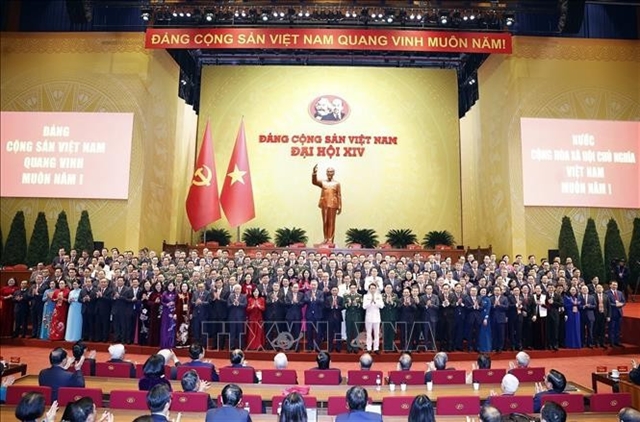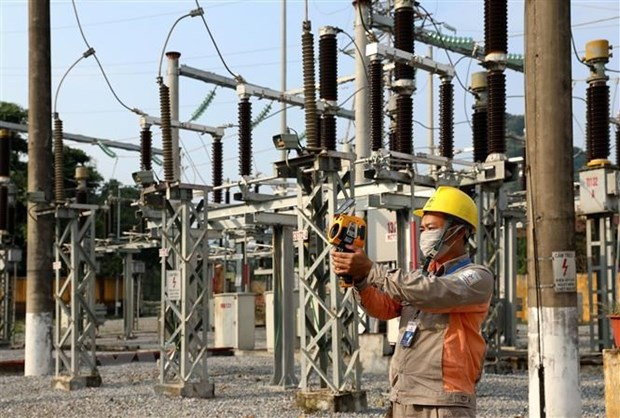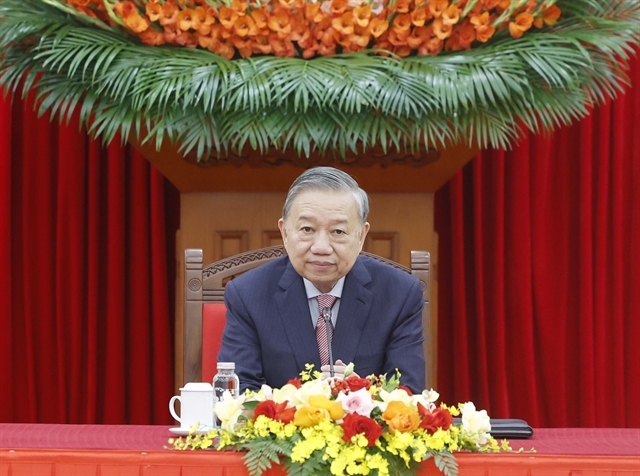 Economy
Economy

 |
| A worker of the EVN Hòa Bình Company examines the 119kV transformer station in the northern province of Hòa Bình province. — VNA/VNS Photo |
HÀ NỘI — The Ministry of Industry and Trade (MoIT), Vietnam Electricity (EVN), and experts share the view that power supply will be guaranteed this year, but the challenge is that demand is forecast to surge amid the post-pandemic economic recovery.
Nguyễn Quốc Trung, deputy director of the National Load Dispatch Centre, said in the 2022 plan on power supply and the national electricity system operations, the MoIT assigned EVN to ensure safe and stable national power grid operations.
This year’s power demand is predicted to be at about 275.5 billion kWh, corresponding to the GDP growth target of 6-6.5 per cent.
Generally speaking, the sector is capable of meeting power demand in the central and southern regions, but difficulties may appear at certain points of time in the northern region, particularly in the peak months of the hot season, he said.
Trung noted that the EVN has built power supply scenarios and coordinated with relevant units and customers to carry out different measures to ensure safe operations, adding supply sources, improving transmission capacity, and encouraging efficient electricity use.
He added that the State-owned group was boosting communications to encourage customers to use energy-saving devices, adopt power efficiency practices, and reduce consumer demand. These are particularly effective and cost-saving as power shortages should only occur at certain points of time.
It is important to maintain high water levels in hydropower reservoirs in the latter half of the dry season to boost the system’s capacity, improve the transmission capacity of the arterial 500kV power lines from the central region to the north, and negotiate electricity imports in the hot season.
It is also necessary to coordinate with parties concerned to guarantee fuel supply for coal-fired power plants to operate at full capacity.
EVN is speeding up large power generation and grid projects, especially plants in the north and the transmission projects linking the northern and central regions while increasing electricity imports for the northern part. Besides, it is considering energy storage systems and facilitating renewable energy development in the north, Trung said.
The firm has also called for coordination between power plants and suppliers of fuel for electricity production to help achieve the targets.
The National Load Dispatch Centre predicted that the northern region may encounter supply difficulties between now and 2025, mainly because the additional power generation each year cannot keep up with demand growth.
According to the draft eighth National Power Development Plan, peak demand during 2022 - 2025 will rise by 2,830MW annually on average, while power generation will increase by only 1,565MW per annum.
However, Trung held that such difficulties would only appear during prolonged heat waves in the latter stage of the dry season, leading to a surge in electricity consumption.
In a recent report, the MoIT said power production and imports between January and May reached an estimated 108.7 billion kWh, up 4 per cent yearly. It was 109 million kWh less than the yearly plan.
EVN noted the production and import would reach 166.6 billion kWh in the remaining months, bringing the total in 2022 to 275.4 billion kWh, up 7.9 per cent compared to 2021.
Reporting on the first quarter’s business results, the group said its system produced 23.45 billion kWh of electricity in March and 63.03 billion kWh in Q1, respectively, up 4.9 per cent and 7.8 per cent year on year.
In Q1, 16.48 billion kWh came from hydropower plants, 28.37 billion kWh from thermal power plants, 7.56 billion kWh from gas-fired power turbines, and 10.01 billion kWh from renewable energy, respectively accounting for 26.1 per cent, 45 per cent, 12 per cent, and 15.9 per cent of the total output. — VNS




